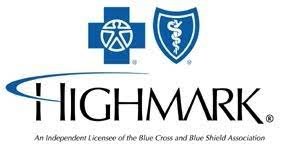Fees and Polices
Payment
Fees:
Fees are set during our initial phone consultation before the first session. I offer a sliding scale of $124-145 per 50 minute psychotherapy session.
Insurance:
At this time, I'm accepting Aetna, Optum, United Health Care, Highmark Blue Shield/Blue Cross Blue Shield plans, Independence Blue Cross, Keystone Health Plan East .
Please note that many insurance plans require their policy holders to meet a deductible before reimbursing providers. It is best to check with your insurance plan before our first session in order to verify that I'm in network with your plan and what the out-of-pocket cost will be, in which case I will gladly provide you with my National Provider Identification number (NPI) and office address beforehand. If your insurance plan does not cover the cost of our sessions either due to a deductible or any other reason, you are responsible for the unpaid amount of my contracted rate with your plan. I'm also happy to provide super bills for you to submit to your insurance company if your plan offers some coverage for out-of-network providers and if you'd like to request reimbursement for my services from them.
Payments for sessions or other billable services can be made using debit, credit, or HSA cards.
In compliance with the 2020 No Surprises Act, a Good Faith Estimate of the yearly cost of my services is available upon request. Please feel free to ask me any questions about fees or payment at any point throughout our work together.
Cancellation Policy
Your weekly appointment is reserved for you in advance therefore, there is an $80 fee for missed or cancelled appointments with less than 24-hours notice. (With the exception of true emergencies)
YOUR RIGHTS AND PROTECTIONS AGAINST SURPRISE
MEDICAL BILLS
(OMB Control Number: 0938-1401)
When you get emergency care or get treated by an out-of-network provider at an in-network hospital or ambulatory surgicalcenter, you are protected from surprise billing or balance billing.
What is “balance billing” (sometimes called “surprise billing”)?
When you see a doctor or other health care provider, you may owe certain out-of-pocket costs, such as a copayment, coinsurance, and/or a deductible. You may have other costs or have to pay the entire bill if you see a provider or visit a health care facility that isn’t in your health plan’s network.
“Out-of-network” describes providers and facilities that haven’t signed a contract with your health plan. Out-of-network providers may be permitted to bill you for the difference between what your plan agreed to pay and the full amount charged for a service. This is called “balance billing.” This amount is likely more than in-network costs for the same service and might not count toward your annual out-of-pocket limit.
“Surprise billing” is an unexpected balance bill. This can happen when you can’t control who is involved in your care - like when you have an emergency or when you schedule a visit at an in-network facility but are unexpectedly treated by an out-of-network provider.
You are protected from balance billing for:
Emergency services
If you have an emergency medical condition and get emergency services from an out-of-network provider or facility, the most the provider or facility may bill you is your plan’s in-network cost-sharing amount (such as copayments and coinsurance). You can’t be balance billed for these emergency services. This includes services you may get after you’re in stable condition, unless you give written consent and give up your protections not to be balanced billed for these post-stabilization services.
Certain services at an in-network hospital or ambulatory surgical center
When you get services from an in-network hospital or ambulatory surgical center, certain providers there may be out-of-network. In these cases, the most those providers may bill you is your plan’s in-network cost-sharing amount. This applies to emergency medicine, anesthesia, pathology, radiology, laboratory, neonatology, assistant surgeon, hospitalist, or intensivistservices. These providers can’t balance bill you and may not ask you to give up your protections not to be balance billed.
If you get other services at these in-network facilities, out-of-network providers can’t balance bill you unless you givewritten consent and give up your protections.
You’re never required to give up your protection from balance billing. You also aren’t required to get care out-of-network. You can choose a provider or facility in your plan’s network.
When balance billing isn’t allowed, you also have the following protections:
· You are only responsible for paying your share of the cost (like the copayments, coinsurance, and deductibles that you would pay if the provider or facility was in-network). Your health plan will pay out-of-network providers and facilitiesdirectly.
· Your health plan generally must:
o Cover emergency services without requiring you to get approval for services in advance (priorauthorization).
o Cover emergency services by out-of-network providers.
o Base what you owe the provider or facility (cost-sharing) on what it would pay an in-network provider or facility and show that amount in your explanation of benefits.
o Count any amount you pay for emergency services or out-of-network services toward your deductibleand out-of-pocket limit.
If you believe you’ve been wrongly billed, you may contact the Pennsylvania State Board of Social Workers, Marriage and Family Therapists and Professional Counselors at (717) 783-1389 or via ticket on their website:
https://www.dos.pa.gov/ProfessionalLicensing/BoardsCommissions/SocialWorkersMarriageanFamilyTherapistsandProfessionalCounselors/Pages/default.aspx
Visit
https://www.cms.gov/files/document/model-disclosure-notice-patient-protections-against-surprise-billing-providers-facilities-health.pdf
for more information about your rights under federal law.








